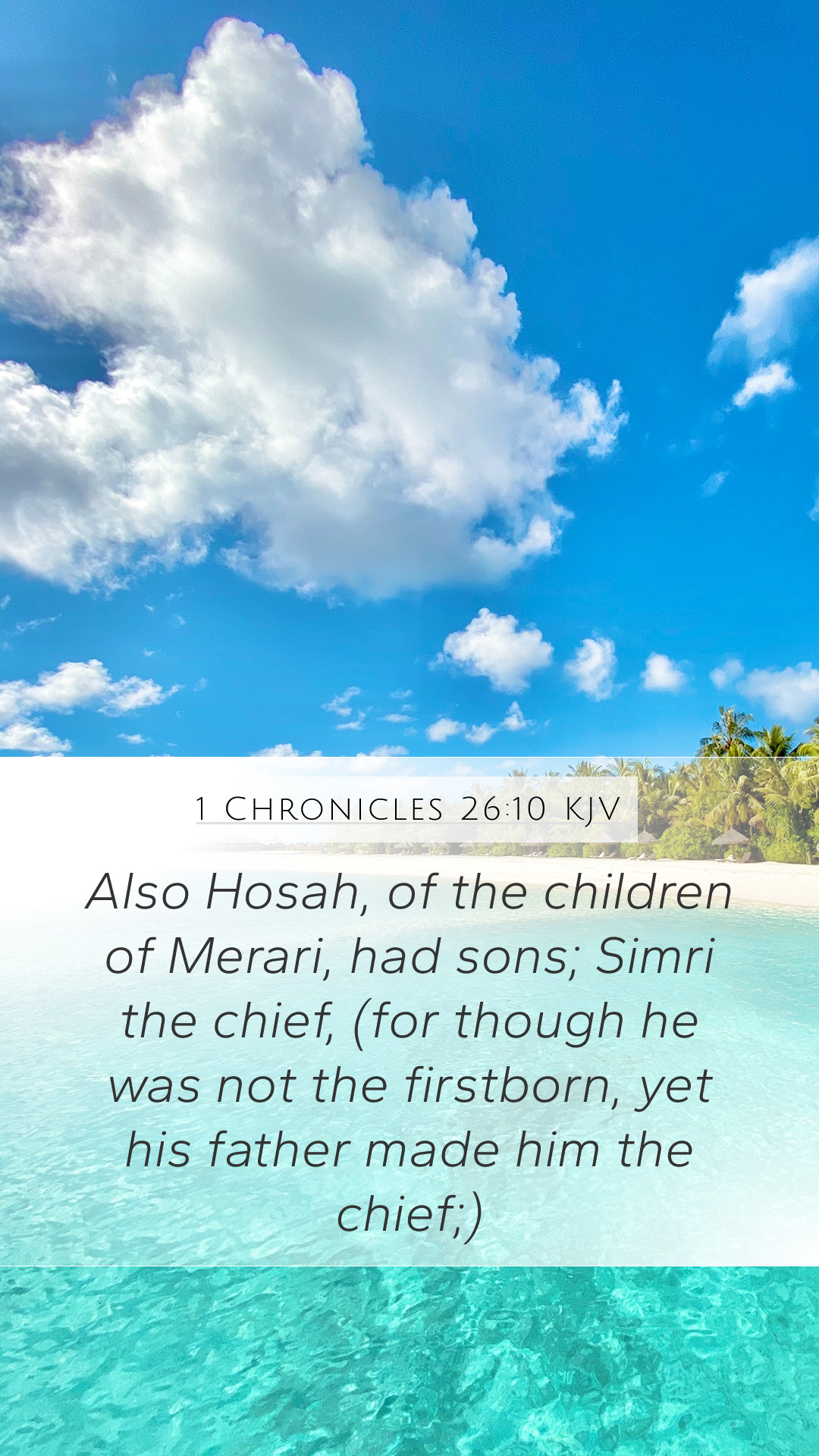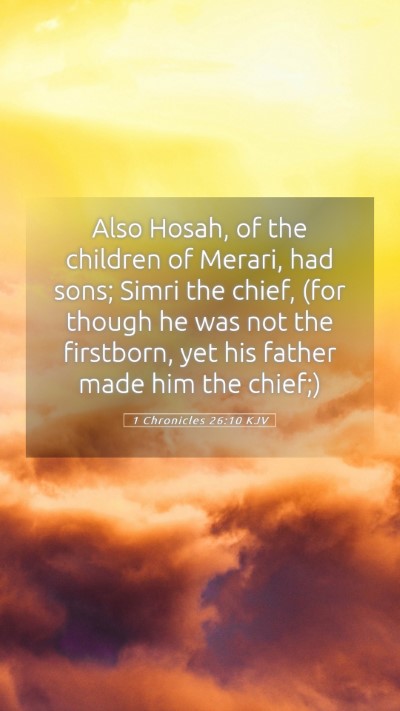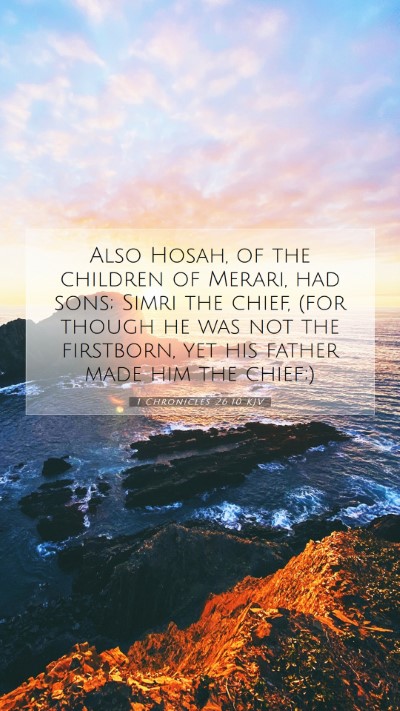Bible Verse Explanation: 1 Chronicles 26:10
Bible Verse: 1 Chronicles 26:10 - "And Hosah, of the children of Merari, had sons; Simri the chief, for though he was not the firstborn, yet his father made him the chief;"
Summary of 1 Chronicles 26:10
This verse introduces us to a key figure in the Levite order during the time of King David, Hosah, a descendant of the Merarites. It emphasizes the significance of leadership roles assigned within the Levitical priesthood, illustrating how merit and ability can sometimes take precedence over birth order in matters of leadership and responsibility.
Insights from Commentaries
-
Matthew Henry:
Henry points out that this passage highlights God's sovereignty in choosing leaders from the Levitical line regardless of their familial positions. Simri, who was not the firstborn, is made chief, exemplifying the idea that God can elevate individuals based on His purpose. This can be related to the larger biblical themes of divine selection and vocational calling within God's service.
-
Albert Barnes:
Barnes interprets the verse as showcasing the organization and structure of the Levitical duties. He explains that these positions were vital for the smooth operation of worship practices in the temple. This verse reflects not just historical importance but also provides a model for church governance and the assignment of responsibilities based on capability rather than birthright.
-
Adam Clarke:
Clarke emphasizes the implications of meritocracy presented in this verse, suggesting that leadership in spiritual matters should be assigned based on gifts and qualifications. He discusses how this foreshadows the New Testament's approach to leadership within the Church, where spiritual gifts are recognized over lineage.
Theological Themes and Significance
The passage underlines several key themes in the context of biblical exegesis:
- God’s Sovereignty: The choice of Simri as chief despite not being the firstborn illustrates that God’s plans may not align with human expectations.
- Leadership and Responsibility: The verse showcases how God values abilities and character over traditional privileges:
- Unity Among the Levites: This allocation of roles suggests a divine order in the community of worshippers, promoting unity within the church body.
Application in Modern Christian Context
Understanding this scripture offers valuable insights for contemporary believers looking for Bible study lessons on leadership, service, and God's qualifications for ministry:
- Believers are encouraged to seek opportunities based on their gifts, as God may call anyone, regardless of their background.
- This verse can inspire discussions in Bible study groups about recognizing and nurturing leadership within the church community.
- It underscores the importance of identifying spiritual gifts, leading to effective ministry and service.
Related Biblical Cross References
- 1 Samuel 16:7: The Lord looks at the heart rather than outward appearances.
- Romans 12:6-8: Each member of the body has different gifts that should be exercised for the benefit of the whole.
- 1 Peter 4:10: Each person should use whatever gift they have received to serve others, faithfully administering God’s grace.
Conclusion
1 Chronicles 26:10 offers profound insights into the nature of leadership and God's divine choices for His people. This scripture invites us to reflect on our own lives, embracing the roles we can play in our communities based on gifts rather than merely status or tradition. For those seeking Bible verse meanings, interpretations, and understanding, this passage is a compelling study of God's work in establishing order and leadership among His people.


